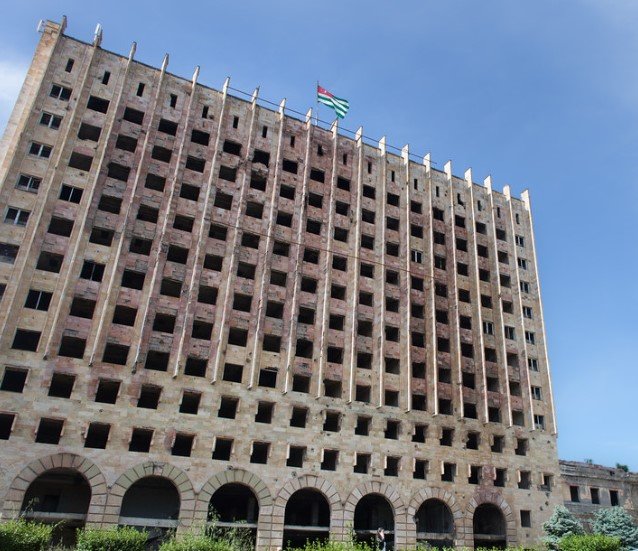Tensions erupted in Abkhazia, the breakaway Georgian region supported by Moscow, as protesters stormed its parliament on Friday. Frustration over a contentious investment agreement with Russia escalated into calls for the resignation of the region’s leader, Aslan Bzhania. Demonstrators, wielding tools and vehicles, breached the parliament compound in the capital Sukhumi, marking a significant escalation in the crisis.
Public Outrage Over Investment Deal
The unrest was triggered by an agreement allowing Russian investors increased access to Abkhazian properties. Critics argue this move could pave the way for wealthy Russian interests to dominate the region’s prime Black Sea real estate, leaving locals marginalized.
Temur Gulia, a leading opposition figure, articulated the growing public discontent. Initially, the protests focused on scrapping the agreement, but the scope has widened. “The people demand the resignation of Aslan Bzhania and categorically intend to achieve it,” he stated.
The protest’s symbolism was stark: a truck rammed through parliament’s gates, and protesters climbed through windows after dismantling metal barriers. The presidential administration offices, housed in the same complex, were also breached, underscoring the scale of public anger.

President Bzhania Stands Firm Amid Chaos
President Aslan Bzhania, a former state security head who rose to power in 2020, refused to step down despite mounting pressure. Writing on Telegram, Bzhania dismissed fears of instability, stating, “I am staying in Abkhazia and will work as I have done.”
In a direct appeal for calm, he assured citizens that talks with opposition leaders were ongoing. His statement added that authorities were preparing to withdraw the contentious investment agreement—a potential attempt to defuse tensions.
However, opposition leaders such as Eshsou Kakalia dismissed the president’s efforts, vowing not to vacate the government complex until Bzhania resigns.
Historical Ties and Moscow’s Role
Abkhazia declared independence from Georgia in the 1990s after a violent conflict, but most of the world still recognizes it as part of Georgia. Russia formally recognized Abkhazia as an independent state in 2008 following its war with Georgia and has since played a dominant role in the region.
The relationship between Abkhazia and Moscow has been fraught with dependency and tension. Russia provides substantial economic and military support to the region, but such assistance often comes with strings attached. Olesya Vartanyan, a regional expert, explained, “The Russians are paying them—they want something back.”
According to Vartanyan, every Abkhazian leader since Moscow’s recognition has faced similar crises, becoming entangled in the dual demands of local governance and Moscow’s expectations. “When you come to power, you have to be loyal to Moscow and then you have to find a way to cooperate,” she added.
Opposition Rejects Anti-Russian Label
The opposition has been careful to frame the protests as focused on Bzhania’s leadership rather than a broader rejection of ties with Russia. In a statement, opposition leaders accused Bzhania of exploiting the Russian-Abkhazian relationship for personal gain, asserting, “Abkhazian society had only one demand: to protect the interests of our citizens and our business.”
This distinction is critical, as the region’s economic reliance on Moscow remains a reality. However, the public’s frustration over perceived corruption and the potential erosion of Abkhazian autonomy appears to be fueling broader discontent.
Human Impact of the Protests
The clashes have not been without consequences. Emergency services reported that at least nine people required hospitalization due to injuries sustained during the unrest. As cleanup efforts begin, the political fallout remains uncertain, with both sides digging in their heels.
Meanwhile, Moscow has expressed concern over the unfolding situation, urging Russian citizens to avoid travel to Abkhazia. For its part, the Kremlin has historically adopted a hands-off approach during such crises, waiting for local conflicts to resolve before striking deals with new leadership.
